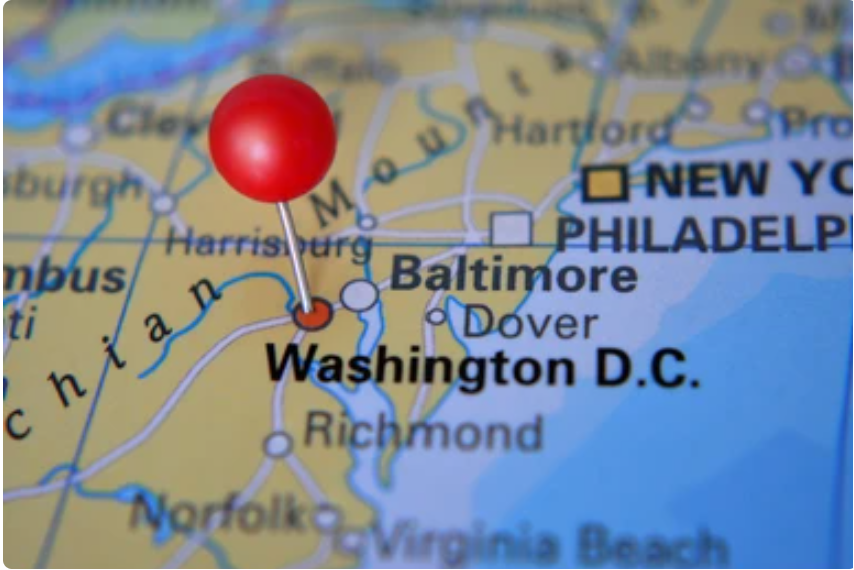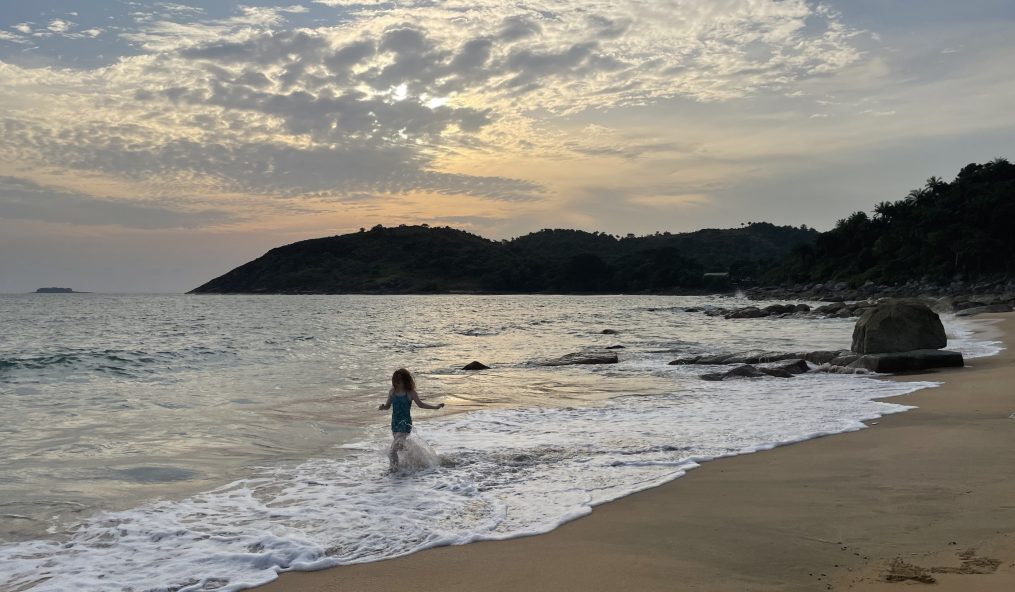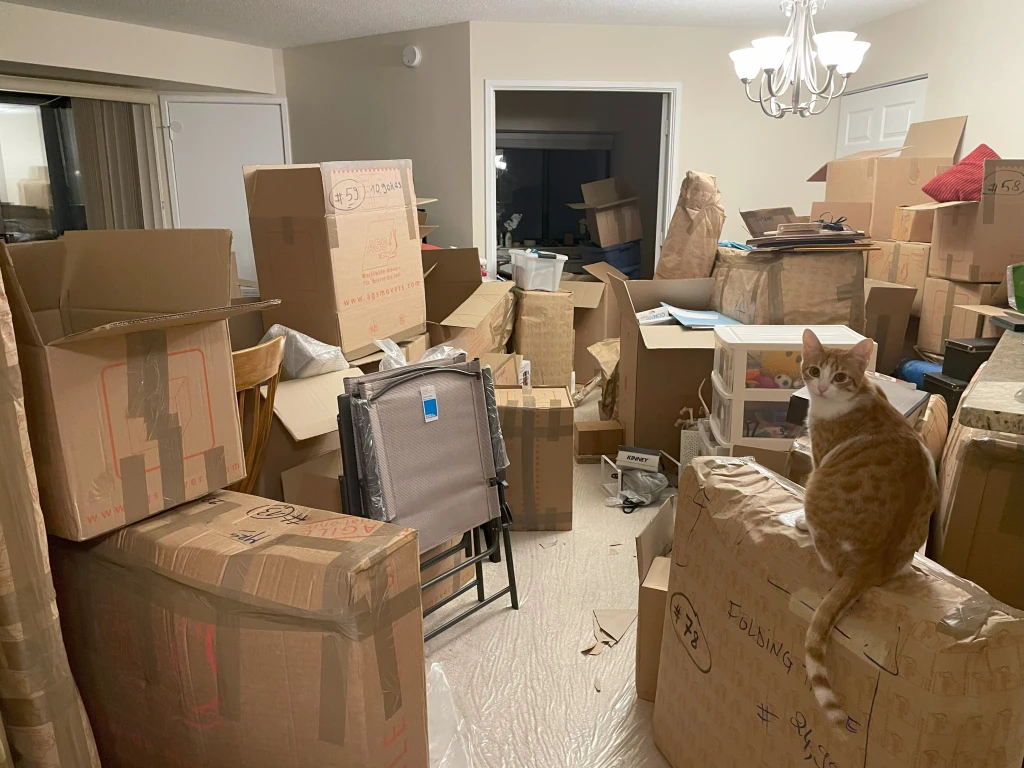
It has been a year since C and I returned to the US after curtailing from Guinea. Now that we have been here awhile and begun to really settle in, I think its time to talk about the positives and negatives of Washington, D.C. as a place of assignment such as I did for Ciudad Juarez, Shanghai, and Lilongwe. (Sadly, we were not in Guinea long enough for me to experience many of the “pros.”)
The Pros
1. Greater Autonomy. Living overseas as part of a diplomatic mission comes with a few extra rules, requirements, and restrictions. There are the mandatory radio checks – call ins to the Marines Post using the Embassy-issued radios to make sure they are in working order in the event of an emergency. These could be weekly or monthly depending on the Post. We also must submit an “out of town locator” every time we travel, domestically or internationally, for security and accountability.
In some of my posts, like Ciudad Juarez, Malawi, and Guinea, mission personnel were prohibited from taking public transport. In Malawi and Guinea, one could not drive outside the city limits between sunset and sunrise, which within 15 degrees of the equator means half the day. When I was in Ciudad Juarez, we were unable to drive beyond the city limits further into Mexico and even some parts of the city were off-limits to us.
At each of my posts, due to either high visa numbers (Shanghai and Ciudad Juarez) or a small staff (Malawi and Guinea), scheduling vacation has been quite the production. Taking a big chunk of time off during the busy summer transfer season, like this past summer, was very unlikely. Even during my previous stints in the U.S. with the State Department I could not as the Foreign Service Institute allows for little leave during training.
But now? No radio checks, no phone trees, no out-of-town locators, no special travel restrictions. And vacationing is a whole lot easier! While not all D.C. offices might be so accommodating, I am very glad for mine. It is nice to have, at least for a little while, far fewer persons from work involved in my free time.
2. Mail That Arrives Fast. Gone are the days of waiting weeks and weeks for our mail to arrive. In Ciudad Juarez, we had a post address in El Paso, Texas, just across the border, and mail staff would pick it up every few days, so it might take only a week to receive our mail. In Shanghai, we had the Diplomatic Post Office (DPO) but our post was routed through Hong Kong, so the delivery times were closer to 10 days to two weeks. Yet, in Malawi and Guinea, mail took quite a bit longer; on average it would take 3-4 weeks, though sometimes longer. For Halloween, I would ask C what she wanted to be in August so we would be sure to have a costume. I would place orders in early November for Christmas and her birthday or risk them not arriving in time. But now? I can now place an order online with a retailer and have it within a few days, if not sooner. It seems quite miraculous.
3. Public Services and Spaces. While some Foreign Service Officers may spend their careers wholly or in part in developed countries, I have leaned toward the less developed, more off-the-beaten-track locales. There have been positive aspects to every place I have lived and served, but one category of things, which are often taken for granted when one has them and greatly missed when one does not are public goods. For example, sidewalks. One of my favorite activities is a nice long walk. Shanghai had many great sidewalks. Ciudad Juarez had a limited number. But they were nearly non-existent in Malawi and Guinea. While I do enjoy walking in an urban environment, there are also many public walking and hiking trails. Or biking, if I ever get around to buying myself a bicycle again. I also rather like public transit and although the U.S., with Americans’ love of the automobile, isn’t exactly a mecca of such, in Washington, D.C. and the cities immediately surrounding it, the bus and metro system is pretty good. Then there are the public libraries (oh, be still my voracious reader heart), public parks, and playgrounds. And museums! The Smithsonian museums of Washington are amazing and free. And schools: my daughter attends a wonderful public school she loves and is thriving in. Even consider emergency services. While the somewhat regular sounds of firetrucks and ambulances (my apartment building is within a mile of two fire stations) might sometimes be annoying, I recall how limited fire, rescue, and police vehicles were in Malawi and Guinea, and I am grateful we have these services.
4. Activities Galore. I have tended toward serving in more “make your own fun” kind of posts where there are often fewer locally organized activities and places to visit. One of the (quite a few) reasons we left Guinea were the few activities for my daughter. There were no summer camps or community centers or parks. While the school offered a limited number of after school activities, there was no late school bus for those who participated in them. I worried my daughter was missing out. Now that we are in Northern Virginia, she is spoiled for choice! The school offers many after school clubs and sports activities and that very important (especially for a working single mom) late school bus. C is participating in chorus and technical theater at school as well as math tutoring, guitar, and Scouts in the community. This past summer she attended summer camps focusing on space, tennis, and writing code. She has expressed interest in getting involved in some of the school sport teams and also maybe taking skateboarding, ice skating, or Irish dancing in the community. All of that and so much more is available!

There is also just more for C and I to do in and around town. In the year we have been back we have visited the Museum of Illusion, the National Portrait Gallery, the National Museum of Asian Art, the National Natural History Museum, the U.S. Holocaust Memorial Museum, Planet Word Museum, the National Zoo, and the U.S. Botanical Garden. We also attended two Washington Nationals baseball games, and saw Cirque du Soleil, the musical Evita, and a traditional concert of the Christmas Revels. There are just endless opportunities for recreation here.
5. Friends and Family. Living the nomadic life we do with so much time far from the U.S., we often miss out on seeing our family; and with so many friends also in the Foreign Service (FS) it is often difficult to catch up with them as they are scattered around the world. But an upside of now living in Washington, D.C. is my family is from the area and live not too far, there are friends from different parts of my life living here, and every FS family has to cycle through Washington at some point. In the past year, C and I have twice been able to see my sister perform on stage with her community theater group. We also attended my brother-in-law’s birthday party. My aunt came up to stay with us for a few days and we traveled down to her in Jacksonville for the Labor Day weekend. In March, we went roller skating with a group of people we served together with in Malawi; in June we met up with a FS friend and her kids at the Natural History Museum for a “Night at the Museum” family event. When friends from Guinea spent a few days of home leave in D.C., we got together with them and another family who had served in Guinea for a day of food and conversation. When other friends from our Malawi days visited D.C. in October, we headed out to Cox Farms for some traditional American fall festival fun. C was able to spend several days in New York with her paternal grandparents during the summer and Thanksgiving at her dad’s in Kentucky. There has been so much more, but the point is that being in the U.S., and especially in D.C., has given us the opportunity to spend more time with friends and family than we have in the past few years combined.
The Cons
#1 Cost of Living. Moving to Washington, D.C. has meant an adjustment in the personal finance department. Depending on which index you look at, D.C. may be listed as the fifth, seventh, or tenth most expensive city in the U.S., but it all points to shelling out more bucks to live here. Rents are particularly high and as a single mom, I am feeling the pinch. When overseas, our housing is part of our benefit package and when I have been in the U.S. on training between assignments, the Department has paid for my housing as part of per diem. This might sound a bit crazy (and I know after I say this I may lose quite a bit of sympathy points from non-Foreign Service readers), but this is the first time I am paying rent and electricity in over a decade. I do get the full Washington, D.C. locality pay, a bump in pay based on the cost of living in certain locales, but I, of course, am no longer receiving the plus up in pay from post differential (added compensation for service in foreign areas that differ substantially from the U.S.) or the cost of living adjustment (COLA; a bump in pay to counteract higher costs in another location). I am also just paying more in activity costs for all those great things we can do. But, I will say, with our wonderful library, my book costs have gone way down.
#2 Smaller Housing and ALL Our Stuff. As previously mentioned, when foreign service officers work overseas our housing is provided as part of our benefits. With the exception of Guinea, I have been provided a lovely (sometimes quirky) three bedroom house or apartment; though our Guinea apartment was a two bedroom, it was very roomy. In D.C., I was lucky to find a nice two-bedroom just outside the city right by a metro (subway) station. It is an older build, so more roomy than many of the newer apartments, but it is still smaller than every one of my Embassy/Consulate homes. When we are in training in the U.S. between overseas positions, the majority of our things are kept in storage. This time though, every one of the 100 plus boxes of our household goods would be delivered to us. I have not had all of my things in the U.S. with me since I first went overseas to work for the government in early 2009. And I have bought quite a few more knick- knacks since then. And acquired a daughter with her own accoutrements. But with the help of a storage room in our building and giving away items in our local Buy Nothing group, we have made it work.
#3. Doing all the chores. I know this one, too, will not make me popular among the non-expat readers, but I keenly feel the lack of household support. As a single working parent, I have chosen posts overseas where I have been able to hire staff to help with the chores. I have had a housekeeper/nanny the previous four postings. In Malawi, I also had an amazing gardener who worked wonders with our yard. C has basically outgrown the nanny and we have no yard to garden, but the chores – the dishes, laundry, vacuuming, taking the garbage out, and more – are all now for me. Well, C is certainly old enough to help, so there is that. And, shhhhh, its a bit of a secret, but sometimes I find I even like to do some of it. There is also the lack of support from the Embassy on household repairs. When something needs fixing in our housing overseas you submit a work order and the facilities staff will take care of it. It isn’t always as fast as one would hope, but they get it done. Here, even though I am renting, I do have to manage the apartment more. When we first moved in, a handle broke off the closet door, the fridge water filter needed replacing, the oven started to smoke upon first heating, and the shower curtain bar fell (on top of me). It’s fine. It is just adulting without Embassy support – what the majority of people deal with. But it is something different.
#4. Winter. I am not a fan of the cold. For years now, I have tried my best to implement a winter avoidance strategy. Having lived in Hawaii, California, Florida, the Philippines, Indonesia, Singapore, Malawi, and Guinea, I think I can say that I have done a fairly good job. Even Ciudad Juarez and Shanghai were rarely very cold and the snow that came once or twice a year was light and short lived. Returning to middle of winter Northern Virginia from always tropical Guinea had been a shock to my well-laid plans. Having culled many of our winter clothes for a multi-year tour in West Africa, we were somewhat unprepared. Though 2023 was fairly mild, the winter of 2024 is predicted to be snowy. I missed D.C.’s major snow storms of the past few years like Snowmaggedon in 2010 and Snowzilla in 2016, but it is possible with several planned years in Washington, that my luck will run out.
#5. Fear of Missing Out (FOMO). I love living overseas and have done so for nearly 19 years in the past 30 in nine different countries. Though we have been back in the States for vacation and training, the longest stint, since January 2009, was the year I joined the State Department. I am a Foreign Service Officer, with the key word being “foreign.” In the past year, we have seen friends move to new countries like Ghana, Turkmenistan, Nicaragua, Kazakhstan, Cameroon, and Nigeria and others announce their next move to locations such as China, Mongolia, Germany, and Laos. I feel a twinge of envy reading every one of these, knowing the mix of excitement and trepidation when one gets a new assignment and then starts it. I know though that staying here in Washington a bit longer was the right thing to do for myself, my daughter, and the cats. Believe you me, the cats really would like to prolong the time before I next shove them into a carrier for another 30-hour journey.
All-in-all, although I do miss the good things we experience overseas, every place comes with the good and the bad, and the positives far outweigh the negatives here in D.C.






Pingback: The Mechanics of Settling into DC – The Wanderlust Diaries